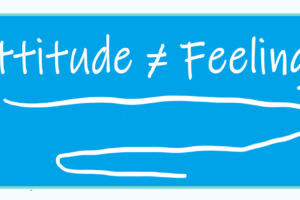If you have decided to go to therapy and decided what type of provider to go to, for example, LCSW or PMH-NP, How to Find The Right Therapist For You – Credentials , congratulations!
The relationship you have with your therapist will be an important one. One factor to keep in mind is that your therapist will not be your “friend”. And the interaction you have with your therapist will likely be different than anything you have seen on TV or in the movies.
As a licensed clinical social worker (LCSW) with over 40 years of experience, I am delighted when someone contacts me for a pre-appointment interview. It means they are taking their search seriously. Please know:
- You are not a bother if you want to ask questions.
- You are not wasting my time when you ask questions.
If a therapist will not engage with you to do a pre-appointment interview, move along to the next person on your list. This is a relationship. If you can’t get what you need in terms of questions answered before you meet, you may have a general idea how therapy may go in the future!
PLEASE ask questions and be an informed consumer. You would do this if you were buying a car. Do it when finding a therapist!!
Where to Find a Therapist
Sometimes it can be difficult to know where to begin to find a therapist. The following are some options:
- If you know someone who is in therapy now, ask who they see.
- Ask your primary care physician for suggestions.
- Check your employer’s benefit package. It may be offered for free.
- Contact your local college or university that offers social work, psychology or counseling as a major. You could work with a therapist in training.
- Do an online search. In the browser section type in “therapist”, “depression” (or anxiety or domestic abuse) and your city or town. Multiple lists will follow.
Before the Interview
You have determined the type of provider you are interested in seeing, social worker, psychologist, etc. And you have a few names. Now what? You need to think about what characteristics you are seeking in a therapist.
As a therapist, during a pre-appointment interview, I have been asked a lot of personal questions. I understand each personal question comes with valid reasons:
- Children?
If the provider does not have children, will s/he be able to relate to parenting issues? - Religious faith?
If the provider is of a different faith or even agnostic, can s/he understand how my faith plays a part in my daily life? - Sexual Orientation
If the provider has a different sexual orientation than I do, will I be judged for mine? - Relationship Status
If the provider is single, will s/he understand what it is like to be married or divorced? - Veteran?
If the provider has never been in the military, how will s/he ever understand my experience? - Age? *
If the provider is significantly older or younger, how can s/he understand what I am facing, for example, a young provider and someone facing retirement? - Race? *
If the provider is of a different race, will s/he understand the cultural differences that make us different? - Sex? *
If the provider is of a different sex, can s/he understand what my truth is?
*If you are doing an online search, you will have a general idea of the provider’s age, race and sex. It is okay to ask explicit questions in a pre-appointment consult.
It is important to know some of these basic characteristics you are seeking in a therapist. Please do not be afraid or embarrassed to ask these questions!!! If the answers are important to you, they will be important to a successful therapeutic relationship! A good therapist will NOT think you are intrusive or nosey!! They will know you want a therapist who has the ability to understand the core of who you are.
Questions for your interview of the therapist:
You have done your due diligence and have narrowed your search to 2 or 3 providers. Now call the therapist and ask for a pre-appointment consult.
Similarities and Differences
- Do you have children?
- Do you have a religious faith? Do you practice it?
- What is your sexual orientation?
- Are you married, single or divorced?
- Are you a veteran?
If no picture: - How old are you?
- What is your race?
- Are you male or female?
Financial Considerations
- What health insurances do you take?
- What is my co-pay?
- Do you have a sliding fee scale?
- Am I charged for no shows or cancellations?
Availability
- Do you have appointments at an hour that fits into my schedule (for example, evenings or early morning)?
- What is your availability “after hours” if I have a problem?
- Is therapy conducted in an office or online?
Experience as a Therapist
- How long have you been a therapist?
- What is your specialty (anxiety, depression, trauma)?
- What licenses or certifications do you have?
- Have you ever been in therapy yourself?
Therapeutic Approach
- Is your approach more directive (giving advice) or guiding (asking questions)?
- Are you likely to give me a gentle nudge or be more straightforward?
- Do you just listen to me or do I do more listening?
- Is your focus more about “talk therapy” or “psycho-educational”?
- Are you more focused on what happened in the past or what is going on now?
- Do you see clients on a more short-term basis (6 to 8 weeks) or more long-term (months or years)?
- Describe your ideal client.
- Are sessions weekly or every other week or as needed?
- How long is each session? 30 minutes, 45 minutes, an hour?
- Do you give homework for me to complete?
Impressions of the Therapist
Covertly you are also interviewing the potential therapist about the relationship you may have with your therapist.
- Does s/he seem “easy to talk to”?
- Did you feel “rushed” or that you were “imposing”?
- Did s/he answer your questions to your satisfaction without seeming condescending or being a know-it-all?
- How was his/her tone of voice?
- Did it seem like you could work together or did something feel “off”?
- Did s/he seem overly friendly or was s/he “reserved” or did s/he sound “professional”?
- Did you feel like you had this person’s undivided attention?
- Did s/he seem inquisitive about you and what you were looking for in a therapist?
- Did you feel comfortable with the therapist’s answers?
- From the conversation, did you feel like you and the therapist would be a good fit or a good match?
Meet the Therapist
When you meet the therapist for the first time, it might feel uncomfortable. Don’t assume all of your problems will be solved in the first session. Give your therapeutic relationship a couple sessions before deciding if it is helpful. Both you and your therapist can have an “off” day. At the end of the first session, ask yourself the same questions about your impression of the therapist.
Your interaction with your therapist is a relationship. As uncomfortable as it seems, if the relationship doesn’t feel right, it is okay to find a different therapist.
Take Away Point
Be an informed consumer. Ask around for recommendations for a therapist. Do a pre-appointment interview. Do you best to make sure your relationship with your therapist starts off on the right foot.
With warmest regards,
Thank you so much for reading this blog. If you enjoyed the content, please check out other blogs at:
www.relationshipsrelearned.com
www.rvingnomads.com
To be notified of future posts, please enter your email address and click on the Subscribe button.











